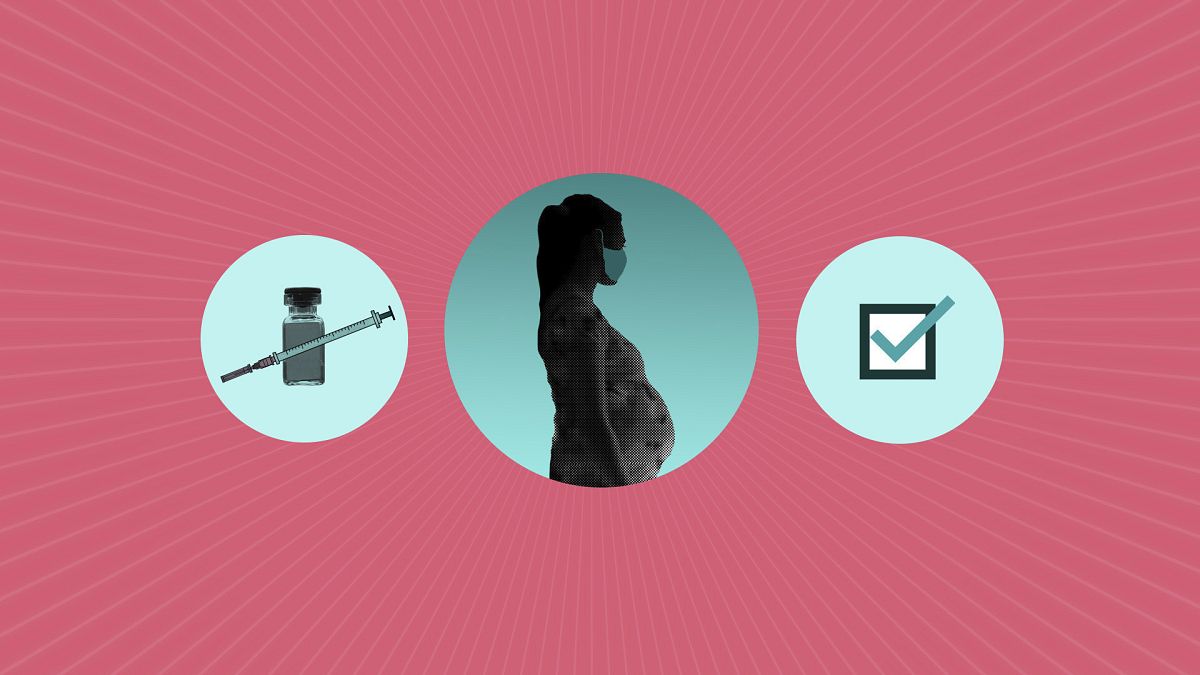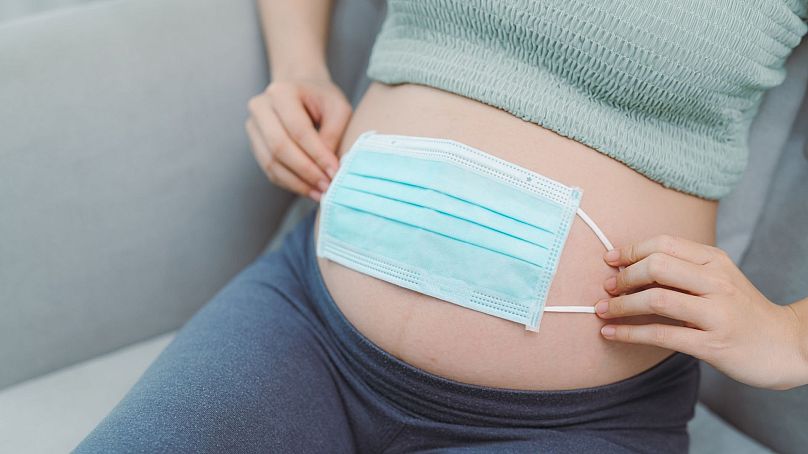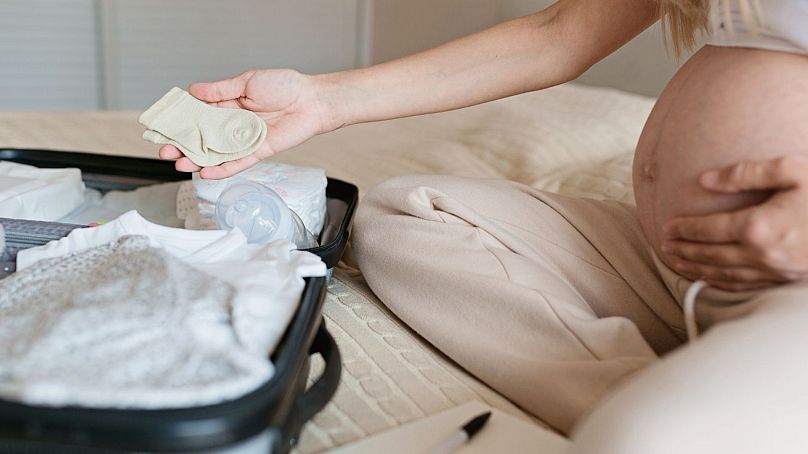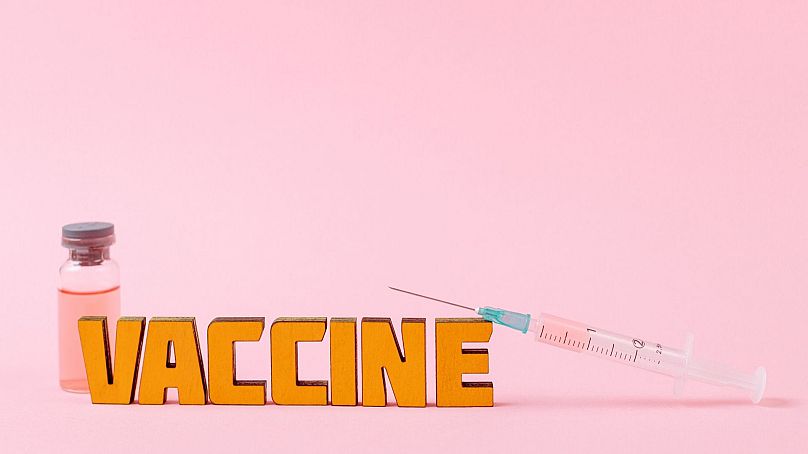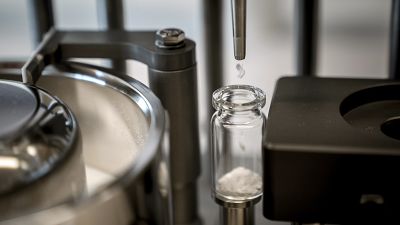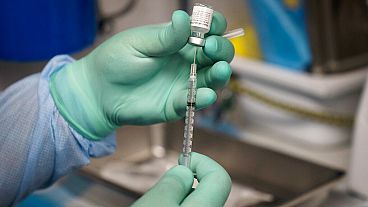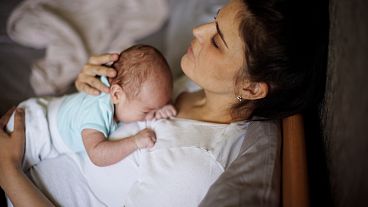Euronews Next spoke to the World Health Organization to find out the impact of COVID vaccines on pregnant women, fertility and periods.
Misinformation about the impact of COVID-19 vaccines on pregnant people and how it may affect fertility and menstruation have spread like wildfire, triggering warnings from health professionals that not enough pregnant women are getting jabbed.
But studies have yet to link any vaccine-related problems with pregnancy and foetal development, or menstrual cycles and fertility in women or men. In fact, studies and experts say it is more dangerous not to get the vaccine.
The latest data from the Centers for Disease Control and Prevention (CDC) in the United States concluded that COVID-19 vaccines are well-tolerated by people who are pregnant, planning a pregnancy or lactating, further suggesting the benefits of having the vaccine far outweighs the risks.
The CDC study is one of the largest of its kind and drew data from a survey of more than 17,000 individuals.
To understand the data behind various studies and to get the facts, Euronews Next spoke to Dr Liudmila Mosina, Technical Specialist on Vaccine-preventable Diseases and Immunization at the World Health Organization (WHO) regional office for Europe.
Euronews: Are COVID-19 vaccines safe for pregnant women?
Dr Mosina: WHO recommends vaccinating pregnant women when the benefits of vaccination outweigh the potential risks.
The information we have got from studies conducted after the introduction of the mRNA vaccines, showed that pregnant women develop antibodies after the vaccination and these antibodies are actually transported in cord blood and breast milk. This suggests that the vaccination will protect not only pregnant women but also their children at an early age.
A recent population-based study from Israel showed that vaccinated pregnant women had a significantly lower risk of COVID-19 infection.
Euronews: What are the dangers for pregnant women and the fetus contracting COVID-19?
Dr Mosina: We know that pregnant women are at higher risk of severe COVID-19 diseases than women in reproductive age who are not pregnant. We have seen multiple (pieces of) evidence that proves this.
“Pregnant women face a higher risk of admission into intensive care units if they get COVID-19 or can be at a higher risk of invasive ventilation.
“COVID-19 in pregnancy also poses a risk for babies. Pregnant women who get COVID-19 during the pregnancy have a higher risk of premature delivery and their children are at a higher risk of needing intensive care. These are facts that we know today.
Euronews: When should pregnant women get the vaccine?
Dr Mosina: When women discuss the vaccine with their medical doctor and it's clear that the benefits of vaccination outweigh the risk, then they should be vaccinated right away to protect them against this disease and all the severe complications that can happen”.
Euronews: Why did the WHO change its recommendations for pregnant women?
Dr Mosina: Public health recommendations are continuously changing as new, strong evidence is brought to light.
When the first COVID-19 vaccines became available, WHO experts recommended vaccinating pregnant women who were at high risk of acquiring the disease, i.e. healthcare workers in contact with COVID-19 patients. Back then, we did not have enough data on the safety and efficacy of the vaccination for pregnant women as they were not part of initial clinical trials.
Now we have more evidence on increased risk of severe COVID-19 outcomes in pregnant women. The real-life data from vaccine safety monitoring did not reveal any additional safety signals.
Data from post-introduction studies on mRNA vaccines suggest that vaccination of pregnant women leads to development of protective antibodies and reduces their risk of COVID-19 infection. These new data allowed WHO to update recommendations on vaccinating this group.
Euronews: What is the effect of COVID vaccines on the fetus?
Dr Mosina: Available data suggest that there is no risk to the fetus. Early real-life data on safety of mRNA vaccines in pregnant women came from the US, which has a well-established vaccine safety monitoring system. These data did not reveal any additional safety signals for pregnant women or their children.
Other smaller studies also confirmed development of protective antibodies in vaccinated pregnant women, effectiveness of mRNA vaccines in preventing COVID-19 infection, and potential protection of babies.
All COVID-19 vaccines included in the WHO List for Emergency Use are not live vaccines, so they cannot cause disease in women or in their babies.
Euronews: What is the impact of COVID-19 vaccines on fertility?
Myths that COVID vaccines can cause infertility and even erectile dysfunction have done the rounds on social media.
A survey published in March that was conducted in the United Kingdom revealed about a quarter of young women did not want to get the COVID vaccine as they were worried about their fertility.
And in July, Google searches for infertility linked to COVID-19 vaccines increased by nealy 34,0000 per cent.
Despite the fears and misinformation, the vaccine has no known proof that COVID vaccines can affect fertility, according to the WHO.
Dr Mosina: WHO recommends COVID-19 vaccines to all people, including those who plan to have children. Vaccination should not be a reason to postpone or avoid pregnancy. There is no evidence that any vaccines, including COVID-19 vaccines, affect fertility in women or men,” she said.
“Since the COVID-19 vaccination was rolled-out, many vaccinated women became pregnant without any problems. WHO continues monitoring safety of COVID-19 vaccines, including their impact on fertility.
Euronews: What is the impact on periods?
On blogs and across social media, women have shared their stories of a change to their menstrual cycle, such as changes to the regularity and volume (heavier or lighter periods).
A study said it is “unclear whether apparent changes are due to COVID-19 infection/illness itself, or other pandemic-related factors like increased psychological stress and changes in health behaviours.”
The study also said it was also “unclear to what degree current findings are explained by reporting bias, recall bias, selection bias and confounding factors”, adding, more research is needed.
But there have been no ‘negative effects’ on periods reported.
Dr Mosina: Many women participated in clinical trials which did not identify any negative effects of vaccination on the menstruation cycle.
Additional evidence confirming safety of vaccines with regards to menstruation came from national and global vaccine safety monitoring systems after vaccination programmes were rolled-out.
Euronews: Why are people hesitant to get COVID-19 vaccines?
Dr Mosina: People are very cautious when there is something new for them, especially when new vaccines become available.
It is understandable. WHO is striving to provide all information to address people’s concerns and help them better understand the benefits and risks of vaccination and make informed decisions on getting the vaccine.
Euronews: How can we avoid vaccine misinformation?
Dr Mosina: Vaccine misinformation can have negative effects on peoples’ decisions to get vaccinated.
It is crucially important that not just pregnant women but everybody have access to trusted and evidence-based information.
The role of health authorities, immunisation experts and health agencies in providing this information is crucial. Media also has a major role to play in this. It's extremely important that journalists get the information from reliable sources and help deliver it.
